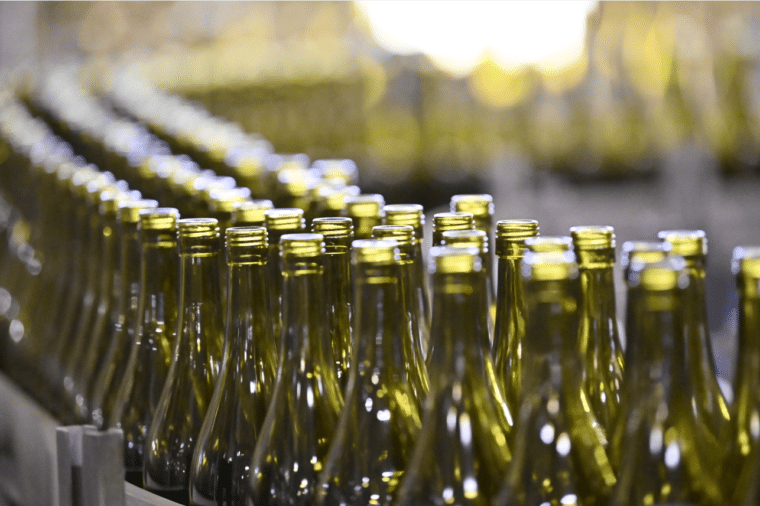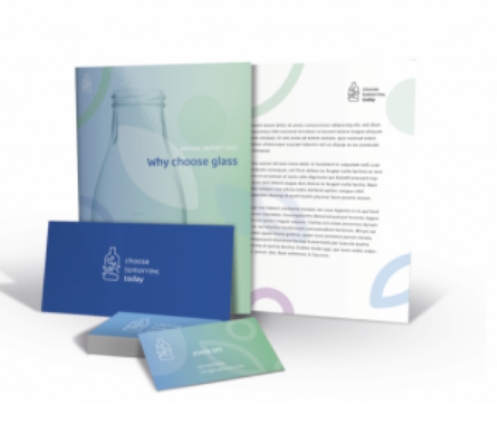Verallia expanding on glass reuse initiatives across Europe
In order to tackle climate change, packaging reduction and decarbonization concerns must be addressed sooner rather than later. Glass, one of the most established packaging materials, is uniquely positioned to lead this path towards a more sustainable future, thanks to its reuse and recycling capacities. As one of the industry leaders of glass packaging, Verallia has several projects across the EU to develop reuse systems into an economically and ecologically viable option.
For over three years, the Verallia Group has been committed to developing reuse, working towards a viable solution for brands looking for more sustainable packaging options for their products. Between 2023 and 2024, several structuring projects will be deployed in France, Germany, Spain and Italy, collaborating with local companies for innovative solutions and determining opportunities which will help expand these reuse initiatives to a larger scale across Europe.
Driving sustainable change by promoting glass reuse across markets
Because of its inherent qualities that allow for product safety and conservation, glass packaging is one of the preferred materials for reuse projects. Circular by nature, glass can be reused up to 50 times without deteriorating, before being recycled 100% with no loss of quality.
Structuring such a sector can be a challenge, as it involves rethinking the value and supply chain of glass packaging, from technical design to collection and washing, as well as organizing new models for reuse in different markets that vary in terms of maturity and regulatory contexts. On top of that, it is important to support and promote changes in consumer behaviour.

Aligned with the glass industry’s overarching vision for decarbonisation and their own objective to “reimagine glass for a sustainable future”, Verallia has committed to fostering innovation to reduce CO2 emissions, increase the rate of recycled glass in its production and develop reuse. They aim to reduce their emissions by 46% (in absolute terms, scopes 1 and 2) and for carbon neutrality by 2050.
Wendy Kool-Foulon, CSR and legal director of the Verallia group, explains: “We are convinced of the potential of reuse and have been at the initiative of several ‘Re-use Lab’ think tanks bringing together all the players in the ecosystem for over three years. It’s an in-depth process, requiring close collaboration with our stakeholders to make it an economically and ecologically viable solution. We are now entering an acceleration phase, with several pilot projects taking shape in Europe.”
Local initiatives and pilot projects launched in several European markets
Reuse systems of glass bottles can be part of the solution towards a more sustainable future as a step before recycling, especially when the return loop of the bottle is frequent, such as with single-serve, high volume and closed loop systems. This is why reuse systems work well locally, where there are short distances to be covered between producers, consumers, and reuse stations.
To achieve their goals, Verallia has launched and participated in several local initiatives and pilot projects in Germany, Spain, France and Italy.
- In Germany, Verallia will introduce from the second quarter of 2024 its own national range of reusable 0.75L wine bottles. These bottles were specifically adapted to the demands of standardisation and the robustness imposed by reuse, while retaining freedom of customisation.
- In Spain, Verallia is supporting the Spanish Wine Federation’s pilot project REBO2VINO. The project sets out to analyse the impact and viability of a wine bottle reuse system. The project, supported through European funding, is a first step towards scaling up the reuse model across Spain.
- In France, Verallia has taken a minority stake in the Nantes-based glass reuse startup Bout’ à Bout‘, which in 2022 alone collected over 700 thousand reusable bottles in the Pays de la Loire region. Verallia will be providing technical and logistical expertise in order to scale up this model across France.
- In Italy, the start of 2023 saw the Re-Use Lab lay the foundations of a future pilot project on the circular economy, involving over a hundred key players to review the circular economy circuits already present on the local market and the opportunities for developing reuse systems.
Additionally, Verallia plans to implement changes in their technology, prioritising low-carbon electric power and renewable fuels in their production, and increasing their use of cullet to reduce the environmental impact of their raw materials.
If we don’t start now, how will we achieve anything? Verallia is already on its path to develop reuse as a viable solution next to recycling. Through these projects, new technologies and partnerships, glass manufacturers across Europe are increasingly finding new ways to decarbonize and reduce our packaging waste for a more sustainable future.
***
As a European leader and the world’s third largest producer of glass packaging for beverages and food products, Verallia wants to redefine the way glass is manufactured, reused and recycled, to make it the most sustainable packaging material in the world. With 34 glass plants, 5 decor plants and 12 cullet (glassware) processing centers in 12 countries, Verallia manufactures 17 billion glass bottles and jars each year to supply 10,000 companies, from local family producers to major international brands.


